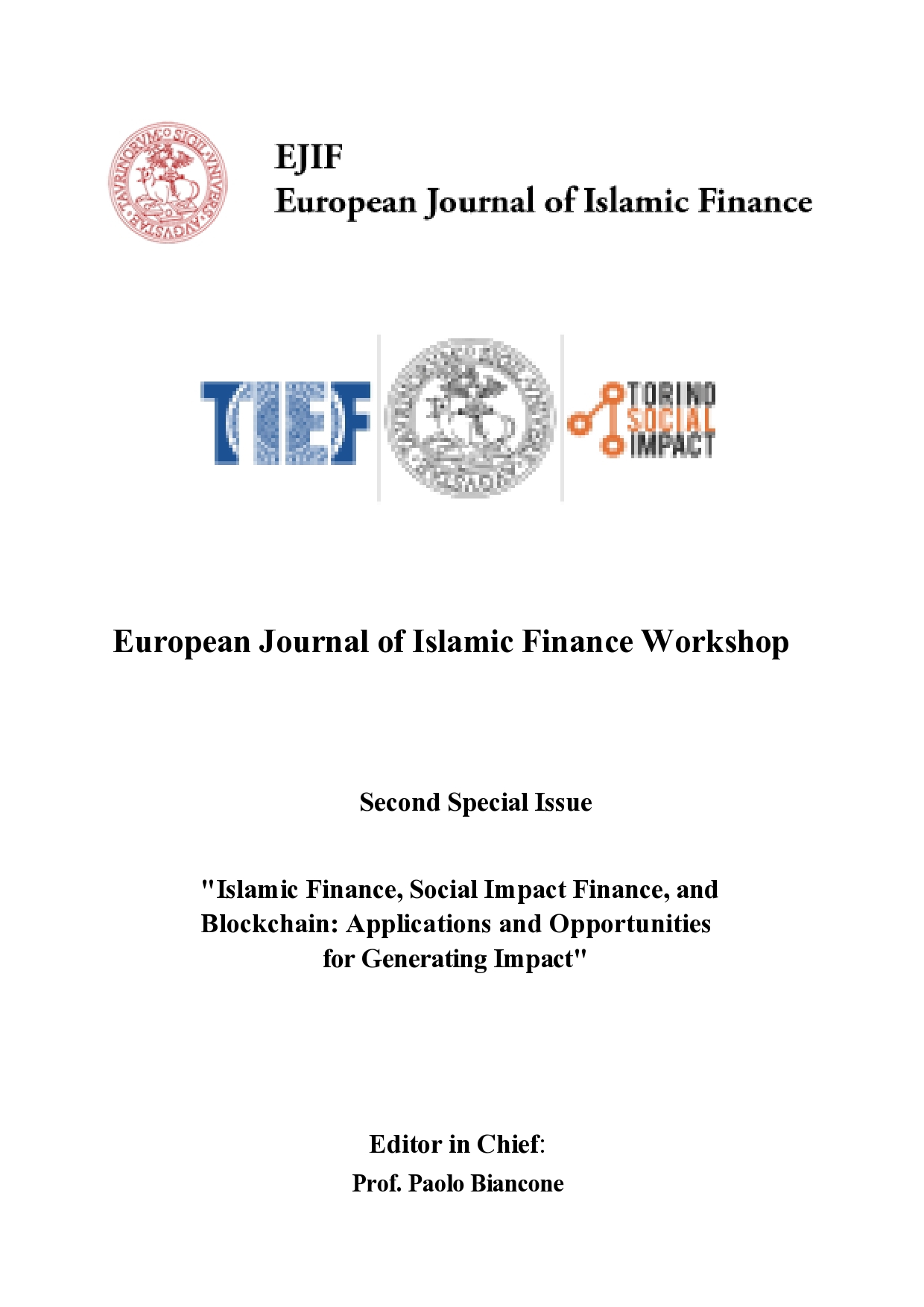Impact of Islamic Microfinance on Borrower’s Income in Pakistan- A Case Study of Akhuwat
DOI:
https://doi.org/10.13135/2421-2172/4633Abstract
Microfinance is a process of providing financial access in the form of micro-credits, and other services such as micro-insurance, savings, checking accounts and payment systems to the poor who do not have access to conventional banking. Lack of collateral and capital assets put limitations on the marginalized community to access the funds through the conventional banking system which leads to their financial exclusion. It is grasped that the objective of financial inclusion can be achieved at its full potential through redistributive instruments (Zakah, Awqaf, Qard al-hassan) of the Islamic microfinance industry. Pakistan Microfinance Review (2017) revealed that Akhuwat (A leading Islamic microfinance organization based on voluntarism and philanthropy) had maintained its outreach top spot in terms of Active Borrowers (820,000) during the year 2017. This study is conducted to analyze microfinance services provided by Akhuwat and its effects on borrowers’ income and consumption. The study adopted the qualitative research designed by applying questionnaires and interviewing techniques to collect data. The study finds that there was a reasonable increase in the income and consumption of the borrowers. Results indicate an average increase of 18 % in rural borrowers’ income and an average increase of 23% in urban borrowers’ income. The study recommends that vocational training should be provided to people in rural areas to enable them to engage in diverse business activities instead of solely relying on agriculture-related business.
Downloads
Published
How to Cite
Issue
Section
License
EJIF content is licensed under a Creative Commons Attribution 4.0 International License.
Authors keep the copyrights for their work and give the journal the work's first publication copyright, which is at the same time licensed under a Creative Commons License – Attribution, which in turn allows other parties to share the work with an acknowledgement of the work's authorship and initial publication in this journal.



 EJIF has been approved for inclusion in
EJIF has been approved for inclusion in  EJIF is a member of
EJIF is a member of  EJIF is indexed by
EJIF is indexed by  EJIF is listed in the ANVUR (Italian National Agency for the Evaluation of Universities and Research Institutes) as a scientific journal
EJIF is listed in the ANVUR (Italian National Agency for the Evaluation of Universities and Research Institutes) as a scientific journal

